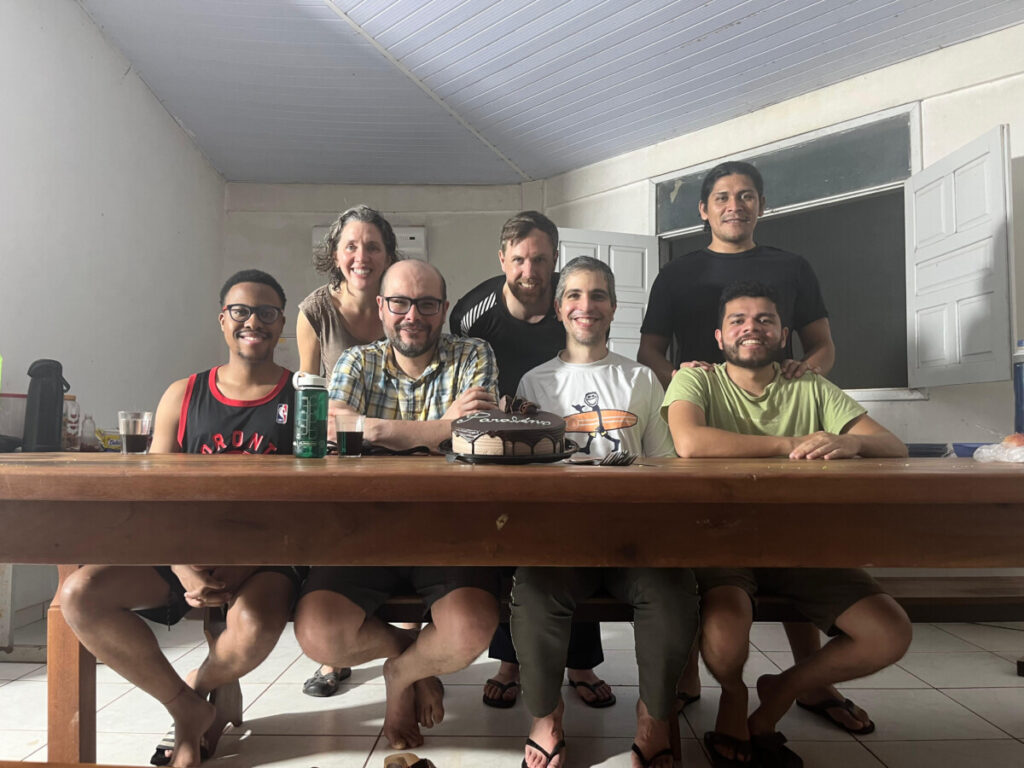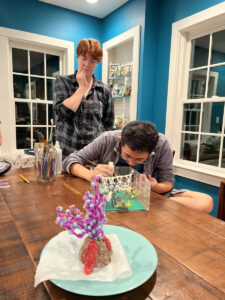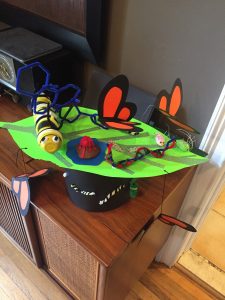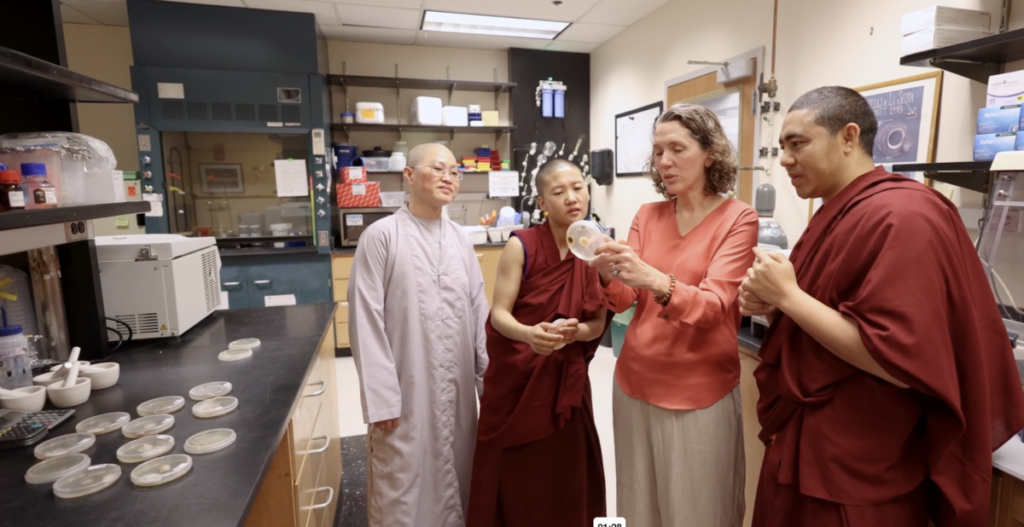I had the great fortune to play a small part in a massive collaboration led by Ted Schultz. Sequencing of almost 300 ants species and 400 cultivars and phylogenetic investigation reveal when key innovations arose in the ants’ agricultural lives. Most notably, at least judging by headlines, is that the agricultural system began to flourish right at the time that catastrophic environmental changes were leading to the extinction of the dinosaurs. Ants 1 – Big Lizards 0.
While in Brazil for fieldwork, I had the opportunity to celebrate the paper with some other authors and collaborators. We missed Ted, but we sent him a picture of the cake!





